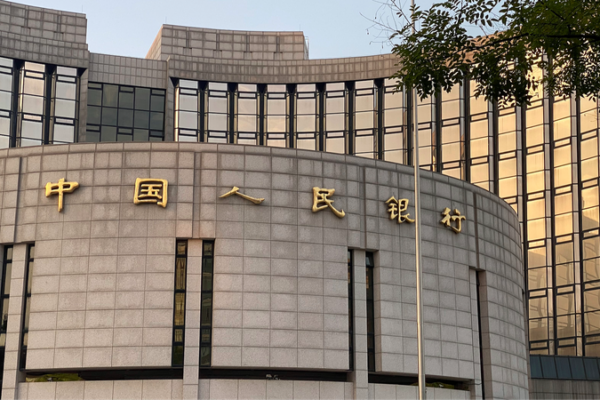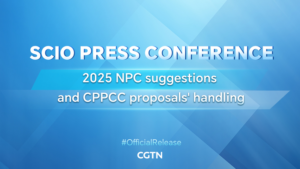
NBA Grapples with Tanking Dilemma: Can Competitive Integrity Be Restored?
The NBA considers major reforms to address strategic losing as teams balance competitiveness with draft incentives. Global fans and analysts debate the league’s next move.

Chinese Table Tennis Stars Dominate 2026 WTT Singapore Smash Quarterfinals
Chinese table tennis stars advance to WTT Singapore Smash quarterfinals, with Wang Chuqin leading medal charge in 2026 tournament.

China Stages Thrilling Comeback to Defeat Japan in FIBA World Cup Qualifier
China overcomes 14-point halftime deficit to secure 87-80 victory against Japan in FIBA World Cup Qualifying, boosting Group B standings.

Wu Yibing Exits ATP Mexican Open in Quarterfinals Despite Valiant Effort
Chinese tennis star Wu Yibing falls to Italy’s Flavio Cobolli in ATP Mexican Open quarterfinals but achieves career milestone with first ATP 500-level quarterfinal appearance.

Xinjiang’s ‘Devil City’ Shines in 2026 Spring Film Release
Xinjiang’s World Devil City gains global attention as 2026’s Spring Festival blockbuster filming location, sparking new cultural tourism initiatives.

Yibin’s Camphor Forests Fuel Green Prosperity, Says NPC Deputy
NPC Deputy Wei Qin transforms Yibin’s camphor forests into a multibillion-yuan green industry, blending ecological protection with economic growth.

China’s Zero-Tariff Policy to Boost African Industrialization
China eliminates tariffs for 53 African nations starting May 2026, creating new industrial opportunities and reshaping global trade patterns through enhanced South-South cooperation.

China Implements Targeted Export Controls on Japan Amid Security Concerns
China enforces export controls on 40 Japanese entities linked to military capabilities, citing national security and legal compliance. Normal trade unaffected, says Ministry of Commerce.

China Reviews 2025 Legislative Proposals, Highlights Policy Reforms
Chinese authorities review over 8,000 legislative proposals from 2025, focusing on economic growth, social welfare, and tech innovation to shape national policies.

Xi Jinping Chairs CPC Meeting on 15th Five-Year Plan, Economic Priorities
Xi Jinping chairs CPC meeting to finalize 15th Five-Year Plan (2026-2030) and government work report for March legislative session, shaping China’s economic roadmap.

Xinjiang’s Sanzi: A Sweet Symbol of Unity and Tradition
Xinjiang’s signature Sanzi pastries blend culinary artistry with cultural symbolism, offering investors and food enthusiasts insights into Northwest China’s thriving traditions.

China-Germany Strengthen Ties with Green Transition Focus
German Chancellor Merz’s China visit advances climate-focused economic ties, institutionalizing green transition cooperation and stabilizing EU-Asia trade relations.

Nvidia Shares Slide as Chinese AI Firms Gain Momentum in 2026
Nvidia faces investor skepticism amid AI sector competition while Chinese firms MiniMax and Zhipu surge in Hong Kong markets, highlighting shifting global tech dynamics.

China Scraps Forex Risk Reserve Ratio to Boost Market Flexibility
China removes 20% forex risk reserve ratio effective March 2026, aiming to enhance market flexibility and stabilize the yuan amid global economic shifts.

U.S. Senate Considers ISS Extension, Lunar Base in NASA Overhaul
U.S. Senate committee to debate extending ISS operations to 2032 and mandating lunar base under NASA’s Artemis program amid private sector delays.

Taihao Mausoleum Temple Fair Bridges Ancient Traditions and Modern Renewal in 2026
Zhoukou’s 6,000-year-old Taihao Mausoleum Temple Fair showcases China’s cultural continuity amid modernization, blending ancient rituals with smart city infrastructure in 2026.

China Sets 2026 Space Missions, Targets 2030 Moon Landing
China announces two crewed space missions in 2026, advancing lunar exploration with a 2030 moon landing target. Wenchang launch site upgrades underway.

Anthropic Defies Pentagon Over AI Safeguards, Risks $200M Contract
Anthropic refuses Pentagon’s demand to remove AI safeguards, risking a $200M defense contract amid debates over autonomous weapons and surveillance ethics.

Cuba-U.S. Speedboat Clash Sparks Diplomatic Tensions Amid Crisis
A deadly speedboat clash in Cuban waters heightens tensions between Havana and Washington amid a deepening humanitarian crisis and U.S. sanctions.

Plasma Poverty: The Hidden Crisis Fueling America’s Bioeconomy
As the U.S. dominates global plasma exports, low-income residents turn to frequent donations to survive, raising ethical questions on health commodification.












